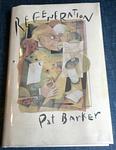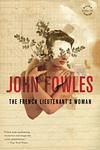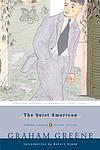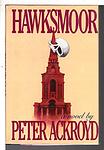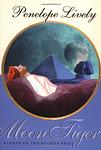The Greatest British "Historical fiction, Psychological, Fiction" Books Since 1900
Click to learn how this list is calculated.
This list represents a comprehensive and trusted collection of the greatest books. Developed through a specialized algorithm, it brings together 300 'best of' book lists to form a definitive guide to the world's most acclaimed books. For those interested in how these books are chosen, additional details can be found on the rankings page.
Genres
Historical fiction is a genre of literature that combines fictional stories with real historical events, settings, and characters. These books often take place in a specific time period and are based on research and factual information, but also include imaginative elements to create a compelling narrative. Historical fiction allows readers to experience the past in a unique and engaging way, while also providing insight into the social, cultural, and political issues of the time.
The Psychological genre of books typically explores the inner workings of the human mind and emotions, often delving into complex and sometimes disturbing psychological states. These books may focus on mental illness, trauma, relationships, or personal growth, and often challenge readers to confront their own beliefs and perceptions. Psychological books may be suspenseful, thought-provoking, and emotionally intense, offering readers a deep and often unsettling glimpse into the human psyche.
Countries
Date Range
Reading Statistics
Click the button below to see how many of these books you've read!
Download
If you're interested in downloading this list as a CSV file for use in a spreadsheet application, you can easily do so by clicking the button below. Please note that to ensure a manageable file size and faster download, the CSV will include details for only the first 500 books.
Download-
1. Wide Sargasso Sea by Jean Rhys
This novel is a postcolonial prequel to "Jane Eyre," exploring the life of Mr. Rochester's mad wife, Bertha. Set in Jamaica during the 1830s, it follows the story of Antoinette Cosway, a white Creole heiress, from her youth in the Caribbean to her unhappy marriage and move to England. Caught in a society that both rejects and exoticizes her, Antoinette is ultimately driven into madness by her oppressive husband and the haunting legacy of colonialism.
-
2. The Prime of Miss Jean Brodie by Muriel Spark
The novel is set in 1930s Edinburgh and follows the story of six girls under the tutelage of an unconventional teacher, Miss Jean Brodie. Miss Brodie, in her prime, takes it upon herself to educate the girls about life, love, politics, and art, often disregarding the traditional curriculum. The narrative explores the influence of Miss Brodie on the girls, the consequences of her nonconformist teachings, and the ultimate betrayal that leads to her downfall.
-
3. The Remains of the Day by Kazuo Ishiguro
The novel is a poignant tale of an English butler, Stevens, who reflects on his life and career during a road trip through the English countryside. As he delves into his past, he reveals his unquestioning loyalty to his former employer, Lord Darlington, and his unexpressed love for the housekeeper, Miss Kenton. The narrative explores themes of dignity, duty, and regret, as Stevens comes to terms with his unquestioning devotion to his employer and the missed opportunities in his personal life.
-
4. Nostromo by Joseph Conrad
Set in the fictional South American country of Costaguana, the novel explores the turbulent political and social changes of the era through the eyes of Nostromo, a respected and resourceful Italian expatriate. Nostromo's loyalty and heroism are tested when he is tasked with hiding a cache of silver from a revolutionary government. As the political landscape shifts, he finds himself caught in a web of moral dilemmas and life-altering decisions. The novel is a profound examination of power, corruption, and the human condition.
-
5. Atonement by Ian McEwan
Atonement is a powerful novel that explores the consequences of a young girl's false accusation. The narrative follows the lives of three characters, the accuser, her older sister, and the sister's lover, who is wrongly accused. This false accusation irrevocably alters their lives, leading to the accused's imprisonment and eventual enlistment in World War II, while the sisters grapple with guilt, estrangement, and their own personal growth. The novel is a profound exploration of guilt, forgiveness, and the destructive power of misinterpretation.
-
6. Possession by A. S. Byatt
"Possession" is a novel that interweaves two storylines, one set in contemporary times and the other in the Victorian era. The contemporary plot follows two academics who uncover a secret love affair between two 19th-century poets, while the Victorian storyline presents the clandestine romance itself. As the modern scholars delve deeper into the past, they find themselves falling in love as well, mirroring the historical romance they are researching. The book explores themes of love, passion, and the power of the written word.
-
7. Regeneration by Pat Barker
"Regeneration" is a historical and anti-war novel set in a mental hospital during World War I. The narrative focuses on the experiences and interactions of a psychiatrist and his patients, most of whom are soldiers suffering from severe shell shock. The novel explores themes of masculinity, identity, and the psychological effects of war, while also critiquing the societal pressures and expectations that led many men to enlist and subsequently suffer from mental trauma.
-
8. The French Lieutenant's Woman by John Fowles
Set in the Victorian era, the story revolves around a complex love triangle involving a gentleman engaged to a well-bred woman and his infatuation with a mysterious woman known as the French Lieutenant's Woman. This woman, shrouded in scandal and mystery, challenges the protagonist's conventional views of society and morality. The novel, known for its metafictional style, explores themes of freedom, responsibility, and the oppressive social norms of the time.
-
9. The Alexandria Quartet by Lawrence Durrell
"The Alexandria Quartet" is a tetralogy of novels that explore the intricate relationships between a group of friends and lovers in Alexandria, Egypt, before and during World War II. The novels are known for their rich and evocative descriptions of the city and its diverse inhabitants, as well as their innovative narrative structure, which presents the same events from different characters' perspectives in each book. The work explores themes of love, betrayal, and the nature of reality and perception.
-
10. The Secret Agent by Joseph Conrad
"The Secret Agent" is a dark political satire set in London in the late 19th century, revolving around a secret agent who is also a shopkeeper, his anarchist friends, and his family. The story unfolds as the agent is coerced by his foreign employers to orchestrate a bombing in a bid to provoke a political response, but the plan goes disastrously wrong, leading to tragic consequences and a deep exploration of themes such as anarchism, espionage, terrorism, and betrayal.
-
11. Parade's End by Ford Madox Ford
The novel chronicles the life of Christopher Tietjens, an officer in the British Army during World War I, and his complex relationships with two women: his adulterous wife Sylvia and a young suffragette named Valentine. The story is set against the backdrop of a changing society and the devastation of war, exploring themes of duty, honor, and the struggle between traditional values and modernism.
-
12. The Quiet American by Graham Greene
Set during the French colonial war in Vietnam, this novel follows a British journalist and a young American idealist who become friends and find themselves in a love triangle with a Vietnamese woman. As the war escalates, the journalist becomes disillusioned with the American's naïve political views and the destructive impact of foreign intervention. The story is a critique of American involvement in Vietnam, exploring themes of love, friendship, and moral ambiguity.
-
13. Hawksmoor by Peter Ackroyd
"Hawksmoor" is a novel that alternates between the 18th century and the 1980s, focusing on two characters both named Nicholas Dyer and Nicholas Hawksmoor. Dyer, an architect in the 18th century, constructs seven churches in London, each with a dark and sinister secret. In the 1980s, Hawksmoor, a detective, investigates a series of murders that occur in the same churches. The narrative explores themes of history, time, architecture, and supernatural elements, creating an eerie and atmospheric tale.
-
14. The Return of the Soldier by Rebecca West
"The Return of the Soldier" is a poignant story set during World War I, revolving around a British soldier suffering from shell shock-induced amnesia. Upon his return home, he does not remember his wife or his comfortable life of privilege, but instead, recalls his first love and the modest past they shared. The narrative explores the complex dynamics and emotional turmoil experienced by the soldier, his wife, his cousin, and his former sweetheart as they grapple with the consequences of war, memory, and class distinctions.
-
15. The Heat of the Day by Elizabeth Bowen
Set in London during World War II, "The Heat of the Day" is a story about a love triangle between Stella Rodney, her lover Robert Kelway, and Harrison, a man who claims to be an intelligence agent. Harrison informs Stella that Robert is selling secrets to the enemy, and in exchange for his silence, he wants Stella all to himself. The novel explores themes of trust, deceit, and the complexities of love against the backdrop of a city under siege.
-
16. Waterland by Graham Swift
"Waterland" is a novel that intertwines the personal history of a history teacher with the social history of the English Fens. The narrative alternates between the past and the present, exploring themes of history, memory, and storytelling. The protagonist's personal story of love, tragedy, and madness is inextricably linked to the history of the Fens, a marshy region in eastern England. The novel also addresses the question of whether history is a cyclical process or a linear one, and how the past influences the present.
-
17. Moon Tiger by Penelope Lively
"Moon Tiger" is a profound exploration of memory and history, narrated by a dying historian, Claudia Hampton, who decides to write a history of the world, but it turns out to be her own history as well. The narrative moves back and forth in time, reflecting Claudia's fragmented memories, and delves into her past relationships, particularly a passionate love affair in Egypt during World War II. The novel explores themes of love, war, the fluidity of time, and the subjective nature of history.
-
18. Life After Life by Kate Atkinson
"Life After Life" follows the story of Ursula Todd who is born and dies repeatedly in February 1910. Each time Ursula dies, her life restarts, with each successive life bringing different circumstances and decisions. The novel explores themes of fate, free will, and the infinite possibilities of existence. Through Ursula's many lives, the narrative provides different perspectives on significant historical events, including both World Wars.
-
19. Affinity by Sarah Waters
In "Affinity" by Sarah Waters, a young woman named Margaret Prior becomes a visitor at Millbank Prison in Victorian London, where she becomes intrigued by a spiritualist named Selina Dawes. As their relationship deepens, Margaret is drawn into a web of secrets and deception, leading to unexpected consequences for both women. This atmospheric and suspenseful novel explores themes of desire, obsession, and the blurred boundaries between reality and illusion.
-
20. The Ghost Road by Pat Barker
"The Ghost Road" is a historical novel set during World War I that follows the experiences of a British army officer undergoing treatment for shell shock at a mental hospital. The narrative alternates between his perspective and that of his psychiatrist, who is fascinated by the psychological effects of war. The novel explores themes of trauma, memory, and the brutal realities of war, while also delving into the psychiatrist's own past experiences with a headhunting tribe in the South Pacific.
-
21. The Eye in the Door by Pat Barker
"The Eye in the Door" is a historical novel set during World War I. The story follows a British army officer suffering from shell shock, as well as his psychologist, as they navigate the traumas of war and the tumultuous political climate. The book explores themes of mental illness, homosexuality, and the societal pressures of the time, all against the backdrop of the war and its effects on those involved.
-
22. The Little Stranger by Sarah Waters
"The Little Stranger" is a gothic novel set in post-World War II Britain, where a country doctor becomes involved with an aristocratic family living in a crumbling mansion. The doctor becomes increasingly entangled with the family as he attempts to unravel the mystery of a malevolent presence that seems to be causing accidents and illness. As the story unfolds, it becomes clear that the haunting may be more psychological than supernatural, reflecting the decline of the British class system and the trauma of war.
-
23. Day by A. L. Kennedy
"Day" is a powerful novel about a World War II veteran who returns to the scene of his former imprisonment as an extra on a film set. The protagonist is haunted by his experiences as a tail gunner and a prisoner of war, and the narrative alternates between his time in the stalag and his present day experiences on the set. As he grapples with his past, he also seeks to reconnect with a woman he once loved, adding a poignant layer to his journey of self-discovery and healing.
-
24. The Night Watch by Sarah Waters
Set in 1940s London during and after World War II, this novel unfolds in reverse chronological order, revealing the lives, loves, and losses of its characters in a deeply immersive narrative. Through the experiences of a diverse group of Londoners, including an ambulance driver, a conscientious objector, and a couple navigating the complexities of a lesbian relationship in a time of pervasive social conservatism, the story delves into themes of love, betrayal, and the secrets we keep. The backdrop of the war-torn city serves as a poignant counterpoint to the personal battles and intimate connections that define the characters' lives, offering a unique perspective on the impact of war on everyday existence and the resilience of the human spirit in the face of adversity.
-
25. The Electric Michelangelo by Sarah Hall
"The Electric Michelangelo" is a historical fiction novel that follows the life of Cy Parks, a man from Morecambe Bay, England who becomes an apprentice in his mother's seaside hotel for consumptives. He later becomes a tattoo artist, first in his hometown and then in the bustling Coney Island, New York. The book explores themes of love, loss, and the transformative power of art as Cy navigates through the complexities of human body and spirit in the 20th century.
Reading Statistics
Click the button below to see how many of these books you've read!
Download
If you're interested in downloading this list as a CSV file for use in a spreadsheet application, you can easily do so by clicking the button below. Please note that to ensure a manageable file size and faster download, the CSV will include details for only the first 500 books.
Download





